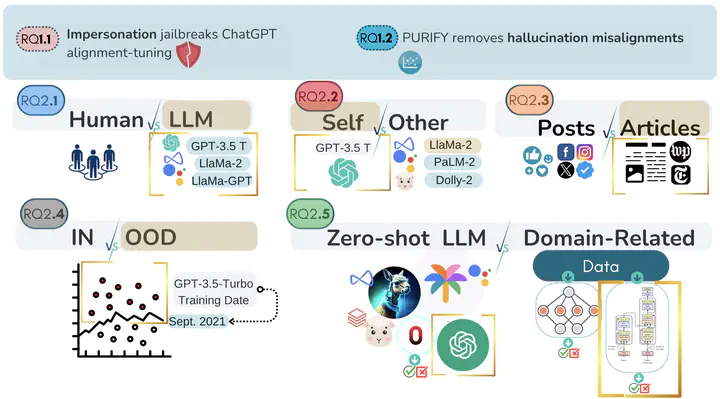 Image credit: Jason Lucas
Image credit: Jason LucasAbstract
Recent ubiquity and disruptive impacts of large language models (LLMs) have raised concerns about their potential to be misused (.i.e, generating large-scale harmful and misleading content). To combat this emerging risk of LLMs, we propose a novel “Fighting Fire with Fire” (F3) strategy that harnesses modern LLMs’ generative and emergent reasoning capabilities to counter human-written and LLM-generated disinformation. First, we leverage GPT-3.5-turbo to synthesize authentic and deceptive LLM-generated content through paraphrase-based and perturbation-based prefix-style prompts, respectively. Second, we apply zero-shot in-context semantic reasoning techniques with cloze-style prompts to discern genuine from deceptive posts and news articles. In our extensive experiments, we observe GPT-3.5-turbo’s zero-shot superiority for both in-distribution and out-of-distribution datasets, where GPT-3.5-turbo consistently achieved accuracy at 68-72%, unlike the decline observed in previous customized and fine-tuned disinformation detectors. Our codebase and dataset are available at https://github.com/mickeymst/F3.
Slides can be added in a few ways:
- Create slides using Hugo Blox Builder’s Slides feature and link using
slidesparameter in the front matter of the talk file - Upload an existing slide deck to
static/and link usingurl_slidesparameter in the front matter of the talk file - Embed your slides (e.g. Google Slides) or presentation video on this page using shortcodes.
Further event details, including page elements such as image galleries, can be added to the body of this page.